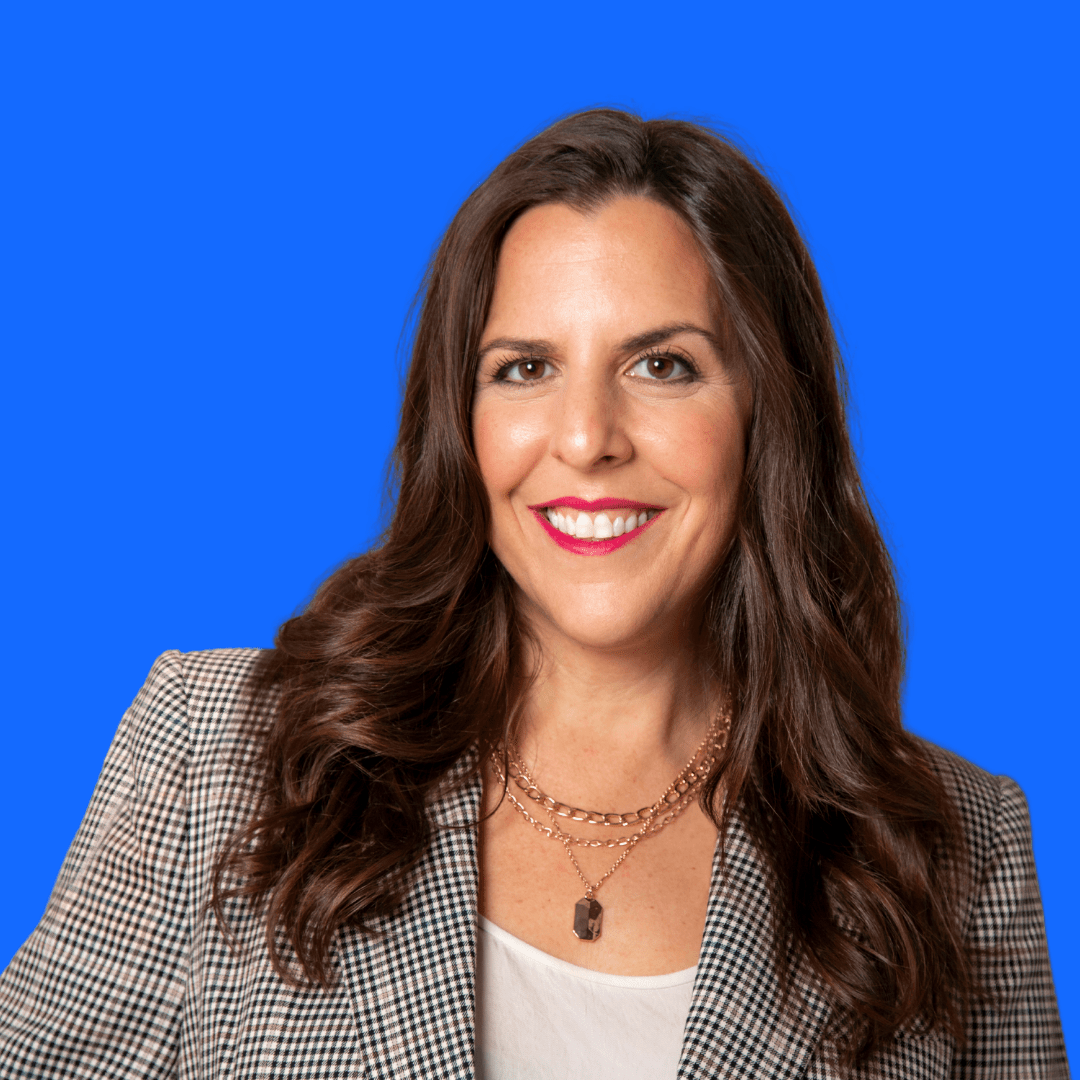The Crunchbase “Female Founder Series,” is a series of stories, Q&As, and thought-leadership pieces from glass-ceiling-smashers who overcame the odds, raised funding, and are now leading successful companies.
Dani Fankhauser, co-founder of XO, is using fun and games to create a better dating app experience.
An early adopter of online dating, Dani is no stranger to the struggles and fatigue that came from traditional apps. In a time where connection is more valuable—and difficult—than ever, she set out with her co-founders to create a fresh and new take for online dating. The result is XO—the first dating app with icebreaker games. The unique back-and-forth of games makes it easier for users to start conversations and build better connections.
We asked Dani about her transition from journalist to entrepreneur, the new challenges she has faced from branding to fundraising, and the lessons she has learned along the way.
Q: Tell us the story behind your company’s founding: What led you to start this business?
A: Back in 2010, I was the first of my friends to try online dating, and proudly, after I convinced a friend to join OkCupid, she met her husband. I was also one of the first journalists to write about Tinder. My co-founders had built a few viral mobile games and when I met them in early 2019, I was personally fatigued by online dating, so I knew it was time for something fresh and new. We designed XO to integrate games into dating to make it an experience that’s not draining and demoralizing, but fun.
Q: What problem does your company solve, or aim to? What are some of the most meaningful impacts your company has had to date?
A: Our mission is to help people build and strengthen genuine connections. The word “connection” gets a bad rep these days because social sites do literally connect us, but make us feel disconnected. Games have a unique back-and-forth, and aren’t too serious, which is why they’re used for team-building, for example. Games powerfully change the tone of an interaction.
I was surprised to hear early user feedback that 100% of people’s interactions on XO had been positive and that users were saying everything they met was really thoughtful and respectful. Of course this was our intention in offering a different interaction than other dating apps. I also believe we’re attracting the type of people who don’t use other apps because of the focus on appearance, so users are meeting different people on XO than they would on Tinder.
Q: In what ways do you think differently about your industry than others do? In what ways are you disrupting your industry?
A: When we first started pitching, we’d hear, “Wow, how has nobody thought of this yet?” Dating and games—it’s one of those great ideas you’d think someone would have done already. My experience comes from building online communities around content that resonates, and my co-founders have built a bunch of games but they aren’t your standard competitive, graphics-driven games. So we came to it with a unique take on what a game is and what dating should be, and that’s why XO has so quickly hooked an eager fanbase.
Q: What was one unexpected hurdle or challenge you faced when getting started?
A: Choosing a name for your app is something that sounds fun but is actually really hard. As a consumer app, the ability to communicate what it is you do in very little space matters—it’s how we break through the noise to investors and journalists before we even get to launch. We wanted something that screamed “dating and games” in as few letters as possible, and we nailed it with XO. We actually had a different name we used for about 10 months before stumbling on XO. There are so many variables—trademark availability (the logic around what you can get is surprising), social/domain availability, word associations people make (we ran a few surveys), surprising alternate meanings you’ll find on UrbanDictionary. One name I liked early on was Wink, but some people associated it with an older man winking at a young woman, and we decided the creepiness factor wasn’t worth it, even though a lot of people liked the name.
Q: What was the best piece of fundraising advice you got?
A: If you get on a call with an investor and they haven’t done at least a little research on you—respectfully bow out of the conversation as quickly as you can. Any input or feedback they’d have from that POV won’t be worth it. Investors are partners and the process is around matching (much like dating!). You don’t need to sell to them, you need an enthusiastic advocate who’s going to turn around and sell your company to the rest of the firm.
Q: How important have you found branding to be for the success of your company? What are the most important branding lessons you’ve learned along the way?
A: Mobile apps have so little time to convince someone that they’re worth using—maybe 90 seconds from the time they open it, and even less time when someone’s on the App Store or Google Play listing. Our name and visual design have helped us a lot here. I frequently hear in feedback calls that the design and name are what convinced people to try it out, especially people who are fed up with other dating apps.
No less importantly is how the brand informs how users treat each other, since it is a social app. The illustrations and characters we use in the app give it a playful vibe, and that changes the mood and energy they put out in conversations with other users.
Lastly, one lesson I’ve learned at the earliest stages of launch is that brand doesn’t matter for testing ad creative. I’d create my own ads in Canva, using an old color scheme, just to get ideas up quickly to see what worked. Once our ads are proven, we can shift them to being perfectly consistent with our branding.
Q: What are the three most important things you look for when bringing on a new hire?
A: Across all functions at a startup, the most important attributes are curiosity, ambition, and precision. Every role ends up covering the scope of multiple roles, so you have to be able to learn fast, and want to be the best at what you do. Plus, the team is small, so no one is looking over your shoulder to catch mistakes. A good indicator of curiosity is if they have a side project, like DJing on the weekends, that’s not super relevant to their functional role. An ambitious person, I’ll usually see that they’ve been president of a club or several on their resume. For precision, I’ll watch for careless typos in application documents.
Q: What is one challenge you have faced as a female founder? What advice would you give to other entrepreneurs in a similar situation?
A: A journalist asked me to spell both of my male co-founder’s names at the beginning of an interview (but not my own—the person he’d presumably be quoting!). In the moment, I thought it was a strange question since spelling would be easier to confirm via email. I went ahead and spelled the names. Later in the interview he said he’d need to interview one of my co-founders to write the piece. As a woman in tech I’m no stranger to sexism, but I wished I had called it out on the call. I’d encourage female founders to trust their gut. Ultimately that journalist wasn’t a fit to be telling our story and the call was a waste of my time.
Q: What advice would you give someone starting out on the journey you’re on?
A: My best advice for someone starting out as an entrepreneur is to join groups and networks. You’re never going to be an expert on everything, but if you know someone who is, it’s 90% done. The biggest breakthroughs I’ve had as a founder come from the connections I’ve built through Dreamers & Doers and On Deck, two phenomenal curated groups I belong to. I’ve hired people, gotten intros for partnerships, and help from someone with a specialized skill so I could complete a one-time task on the cheap.
Dreamers & Doers is a private collective which amplifies the entrepreneurial pursuits of extraordinary womxn through high-impact resources, community and mutual support. It is supported by a global ecosystem of 30,000 womxn. Learn more about Dreamers & Doers and sign up for their monthly carefully curated list of top career and entrepreneurial resources.





